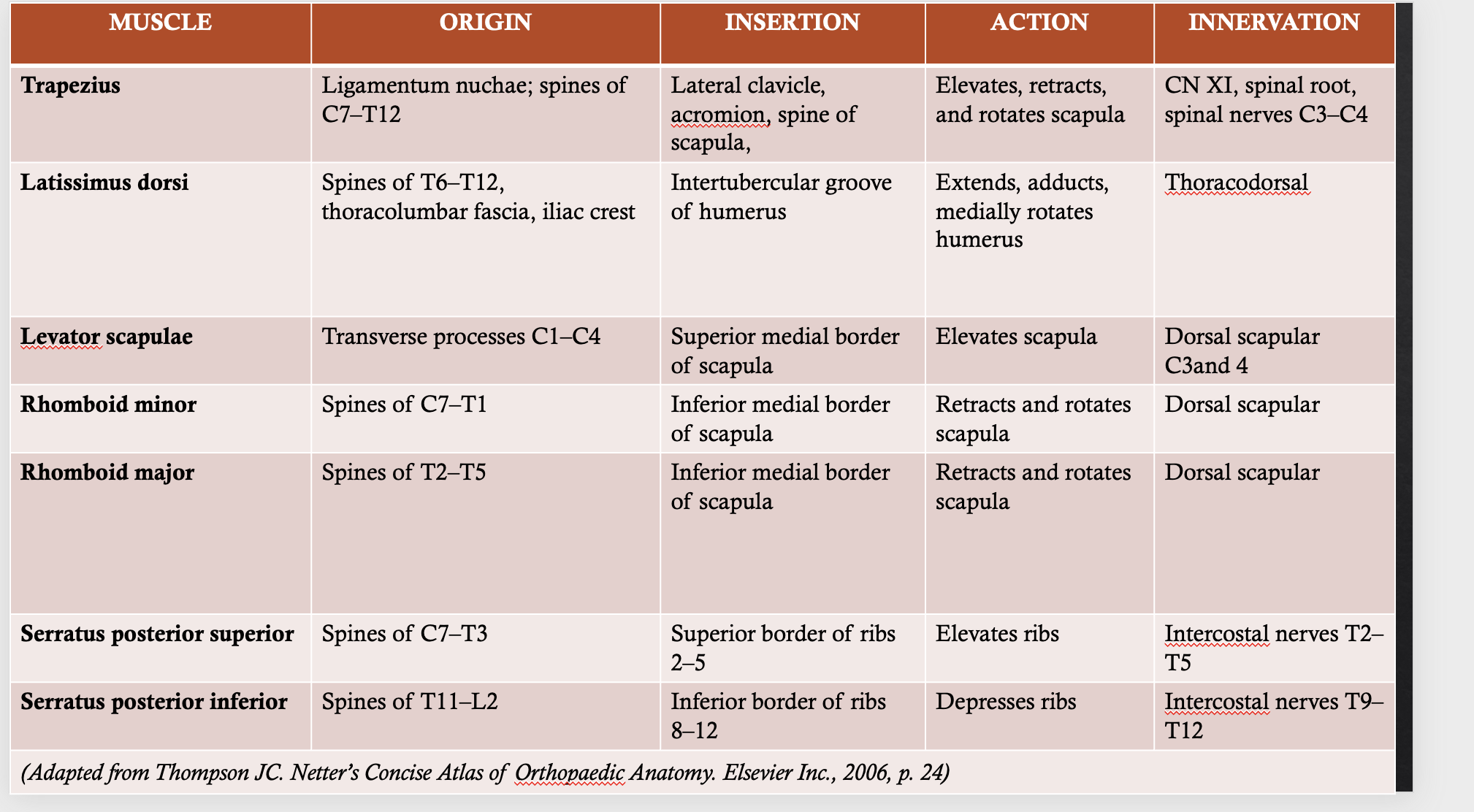
Understand the Problem
The image presents a table listing various muscles, their origins, insertions, actions, and innervations. It seems to be aimed at understanding muscle anatomy.
Answer
Latissimus dorsi originates T6-T12, thoracolumbar fascia, iliac crest; inserts humerus groove; extends, adducts, medially rotates humerus; innervated by thoracodorsal.
The latissimus dorsi originates from the spines of T6-T12, thoracolumbar fascia, and iliac crest. It inserts into the intertubercular groove of the humerus, and its action is to extend, adduct, and medially rotate the humerus. It is innervated by the thoracodorsal nerve.
Answer for screen readers
The latissimus dorsi originates from the spines of T6-T12, thoracolumbar fascia, and iliac crest. It inserts into the intertubercular groove of the humerus, and its action is to extend, adduct, and medially rotate the humerus. It is innervated by the thoracodorsal nerve.
More Information
The latissimus dorsi is a large muscle on the back responsible for various shoulder and arm movements. It's crucial for climbing, swimming, and activities requiring pulling power.
Tips
Common mistakes include mixing up the insertion and origin points or confusing its innervation with other similar muscles.
AI-generated content may contain errors. Please verify critical information